Indigenous Sciences Resource List
“In the Western tradition there is a recognized hierarchy of beings, with, of course, the human being on top—the pinnacle of evolution, the darling of Creation—and the plants at the bottom. But in Native ways of knowing, human people are often referred to as “the younger brothers of Creation.” We say that humans have the least experience with how to live and thus the most to learn—we must look to our teachers among the other species for guidance. Their wisdom is apparent in the way that they live. They teach us by example. They’ve been on the earth far longer than we have been, and have had time to figure things out.” - Dr. Robin Wall Kimmerer
Suggested Articles
- Testing Justice: New Ways to Address Environmental Inequalities by Michelle Montgomery and Paulette Blanchard (2022)
- Natural and Indigenous Sciences: Reflections on an Attempt to Collaborate by Ilona Kater (2022)
- I Am Not Represented Here: Cultural Frameworks and Indigenous Methodology Primer for Postsecondary Settings by Tina Fraser and Linda O’Neill (2021) (requires login)
- Decolonizing Methodologies in Qualitative Research: Creating Spaces for Transformative Praxis by Vivetha Thambinathan and Elizabeth Anne Kinsella (2021) (requires login)
- Keeping Indigenous Science Knowledge out of a Colonial Mold by Kimberly M. S. Cartier (2019)
- Cultural Processes of Ethnoracial Disadvantage among Native American College Students by Erin A Cech, Jessi L Smith, and Anneke Metz (2019) (requires login)
Suggested Books
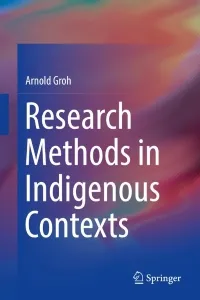
Research Methods in Indigenous Contexts by Arnold Groh (2018) (requires login)
"This forward-looking resource offers readers a modern contextual framework for conducting social science research with indigenous peoples. Foundational chapters summarize current UN-based standards for indigenous rights and autonomy, with their implications for research practice. Coverage goes on to detail minimally-invasive data-gathering methods, survey current training and competency issues, and consider the scientist’s role in research, particularly as a product of his/her own cultural background. From these guidelines and findings, students and professionals have a robust base for carrying out indigenous research that is valid and reliable as well as respectful and ethical."
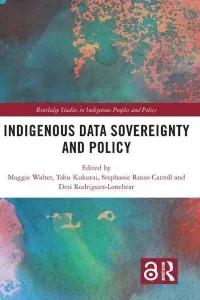
Indigenous Data Sovereignty and Policy edited by Maggie Walter, Tahu Kukutai, Stephanie Russo Carroll and Desi Rodriguez-Lonebear (2021)
"This book examines how Indigenous Peoples around the world are demanding greater data sovereignty, and challenging the ways in which governments have historically used Indigenous data to develop policies and programs."
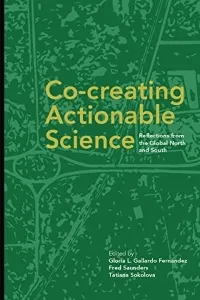
Co-Creating Actionable Science: Reflections from the Global North and South edited by Gloria L. Gallardo Fernández, Fred Saunders and Tatiana Sokolova (2020)
"Situated within a wide variety of research settings in the global North and South, the contributions here variously probe how actionable science emerges (or fails to emerge) in this process. From diverse perspectives, they ruminate on various research practice topics, including how to reconcile scientific understanding with normative action, how to acknowledge and integrate participant knowledge in research, and how to handle potential negative impacts of actionable science. In examining these rarely reflected-upon questions, the book provides valuable, empirically-based insights into research practice, and will be useful for scholars and educators working with transdisciplinary research design and practice."
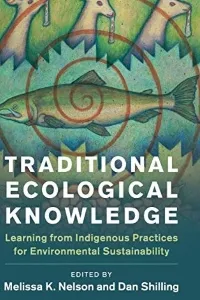
Traditional Ecological Knowledge by Melissa K. Nelson (2018)
"This book examines the importance of Traditional Ecological Knowledge (TEK) and how it can provide models for a time-tested form of sustainability needed in the world today. The essays, written by a team of scholars from diverse disciplinary backgrounds, explore TEK through compelling cases of environmental sustainability from multiple tribal and geographic locations in North America and beyond."
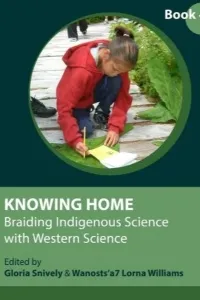
Knowing Home: Braiding Indigenous Science with Western Science edited by Gloria Snively and Wanosts'a7 Lorna Williams (2016)
"The traditional wisdom component of Indigenous Science—the values and ways of decision-making—assists humans in their relationship with each other, the land and water, and all of creation. Indigenous perspectives have the potential to give insight and guidance to the kind of environmental ethics and deep understanding that we must gain as we attempt to solve the increasingly complex problems of the 21st century."
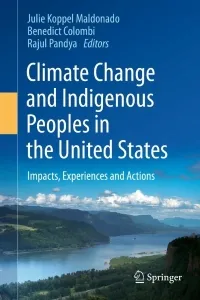
Climate Change and Indigenous Peoples in the United States: Impacts, Experiences, and Actions by Julie Koppel Maldonado, Benedict Colombi, and Rajul Pandya (2014) (requires login)
"With a long history and deep connection to the Earth’s resources, indigenous peoples have an intimate understanding and ability to observe the impacts linked to climate change. Traditional ecological knowledge and tribal experience play a key role in developing future scientific solutions for adaptation to the impacts."
Suggested Videos
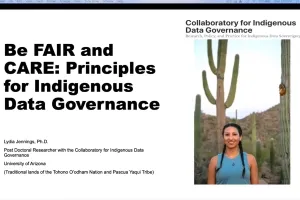
Be FAIR and CARE: The CARE Principles for Indigenous Data Governance by Dr. Lydia Jennings (2021)
"Concerns about secondary use of data and limited opportunities for benefit-sharing have focused attention on the tension that Indigenous communities feel between (1) protecting Indigenous rights and interests in Indigenous data (including traditional knowledges) and (2) supporting open data, machine learning, broad data sharing, and big data initiatives."
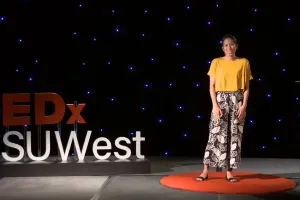
Science in Sacred Spaces: Reimagining Native Science in Academia by Haunani Kane (2021)
"Haunani Kane set sail across the Pacific Ocean with a group of young Indigenous voyagers...Throughout this journey, Dr. Kane and her students found ways to connect with their Kūpuna and reflect on the roles that Hawaiians and Pacific Islanders have in environmental and conservation science."
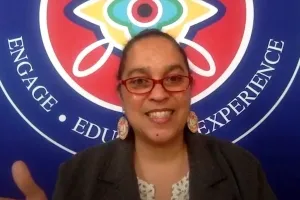
Climate Change: An Indigenous Perspective by Lorén Spears (2021)
"Lorén Spears, citizen of the Narragansett Nation, shares important things that can be learned from Indigenous ways of knowing and how “environmental justice equals Indigenous rights”. She emphasizes the principle of giving back that which has been taken as a way to create life preserving balance."
Suggested Webinar Series
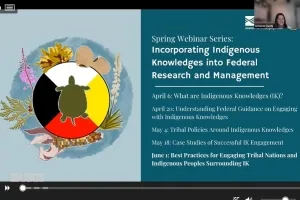
USGS Incorporating Indigenous Knowledges into Federal Research and Management by Climate Adaptation Science Centers (2023)
"The National CASC hosted a webinar series on how to integrate Indigenous Knowledges (IK) into Federal research and resource management programs. It centers Indigenous voices to explore ethical, legal, and scientific considerations for working within different knowledge systems and provides guidance reflecting best practices."